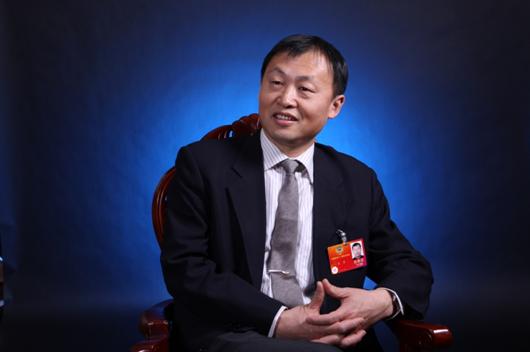The real state of real estate
Smaller, cash-strapped players are being squeezed out of the real estate market as competition intensifies and the government continues to tighten its grip on the sector in a bid to cool housing prices. But this is a healthy development that will help stabilize the market and promote quality- rather than quantity-oriented urbanization.
The government's tough regulations on credit channels have made the financing capability of real estate developers and their sales volumes the key to their competitiveness. This is because tougher credit policies will not directly affect leading developers' financing abilities, because they rely more on sales and other financing channels, such as trust funds and overseas financing, rather than loans. The policies, in fact, will force the industry to be more concentrated in the hands of the large corporations.
Latest China Real Estate Association figures show that there are more than 60,000 real estate developers in China, but the revenue from housing sales of the top 500 developers accounted for 39.2 percent of the total, or 2.53 trillion yuan ($408.35 billion), in 2012. Furthermore, the top 50 developers accounted for 59 percent of the revenue for housing sales and the top 100, more than 70 percent.
"The era of high profits for developers is coming to an end," says Zhu Zhongyi, vice-president of the China Real Estate Association.
Li Zhanjun, director of Shanghai E-house Real Estate Research Institute Center, says the government's tougher restrictions on credit will not affect developers' financing ability directly in 2013, but it is bound to have a big impact on developers, especially smaller developers, if the government imposes more restrictions that lead to a sharp drop in sales.
The proposed 20 percent tax on capital gains has increased property transactions because people are rushing in to close deals before the policy is implemented, though sales will drop when the capital gains tax is implemented. And with local governments required to announce detailed measures to curb prices by the end of the month, the housing market is likely to gradually feel the squeeze of government polices.
In the first half of 2012 when market activities declined to maintain the sales momentum, many top developers reduced prices to attract buyers. China Merchants Property, for example, reduced its prices by 10 percent nationwide from March to May 2012. But many smaller developers couldn't afford to do so because of their reliance on sales for funds. The top developers have more financing channels and can afford to offer discounts and adopt a long-term strategy.
But even as the government regulations start to bite, it is clear that the leading developers have already absorbed the harsher regulatory climate and are focusing more on long-term strategy, such as how to connect with the government's goal of higher quality urbanization and building an ecological society.
The overriding concern for medium and small developers, on the other hand, is the effect specific policies will have on their immediate operations. The wide gap between the range of their visions shows why the government shake-up is necessary to help stabilize the market.
Now that profit margins in the domestic market are shrinking, many of the country's biggest developers are exploring overseas markets. Greenland Group, for example, is developing projects in South Korea and Australia. And Vanke has set its sights on becoming an international company in the next 10 years.
If the government extends the property tax, currently being trailed in Shanghai and Chongqing, and tightens the monetary policy further, as it has threatened to do if housing prices continue to rise, the market will become more favorable for the big developers as sales decline.
But while this will probably cause a drop in realty construction and slow down China's overall economic growth, at the same time it will remove some of the uncertainties that have accompanied the growing property bubble and be beneficial for the national economy in the long run.
The author is a reporter with China Daily.
Email: zhujin@chinadaily.com.cn.
(China Daily 04/12/2013 page9)





















